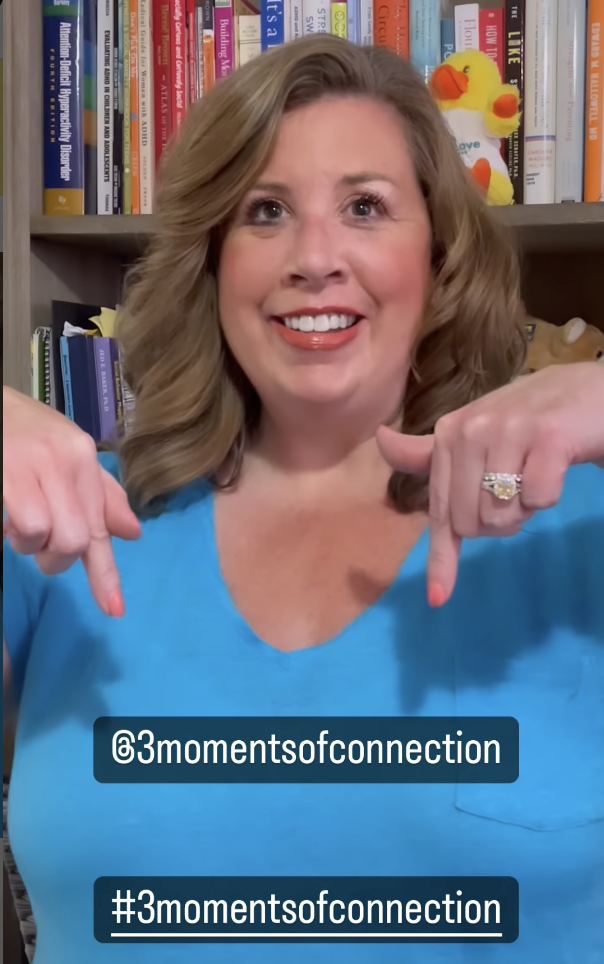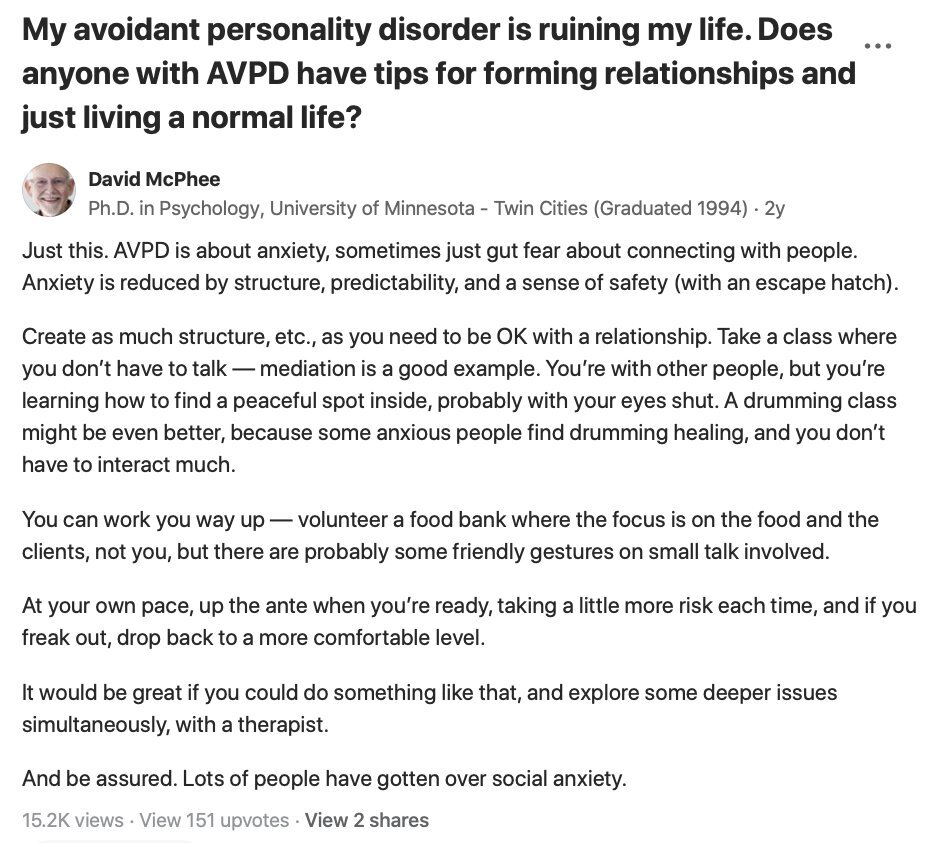Hello over here,back in 2020,after a difficult situation i passed into workplace during covid restrictions,social anxiety,pressure,negative gossip and more,i failed to continue,i cracked due to many psychological and emotional stress,i retired from the job,but from next few weeks i got into an emotional hell,i couldn't sleep well,i was crying,i felt so weak,so rejected.Even if i found new job after 2 months in a more reliable company,for next 1.5 year i was taking meds efexor 75mg,doing psychotherapy and finally after many sessions,doctor diagnosed me with AVPD.☹️🥺
This disorder as many others,have no specific cure or treatment as there are not known the causes of it,i've tried supportive therapy,i;ve tried schema therapy some months,but didn't worked for me to ease the symptoms.😓 I'm dissapointed cause this disorder has ruined my whole social life.
My current situation is,i don't have friendships,never had from early childhood,i don't have relationships with girls/women never,no sex life at all,i hate my job but i'm trapped cause i can't find anything else,i still live with parents and they are not supportive at all and they are to critical up on me,i'm not going vacations as i don't have nobody to go with,i'm complete alone out there,may i have 1-2 friends.
This disorder as many others,have no specific cure or treatment as there are not known the causes of it,i've tried supportive therapy,i;ve tried schema therapy some months,but didn't worked for me to ease the symptoms.😓 I'm dissapointed cause this disorder has ruined my whole social life.
My current situation is,i don't have friendships,never had from early childhood,i don't have relationships with girls/women never,no sex life at all,i hate my job but i'm trapped cause i can't find anything else,i still live with parents and they are not supportive at all and they are to critical up on me,i'm not going vacations as i don't have nobody to go with,i'm complete alone out there,may i have 1-2 friends.




